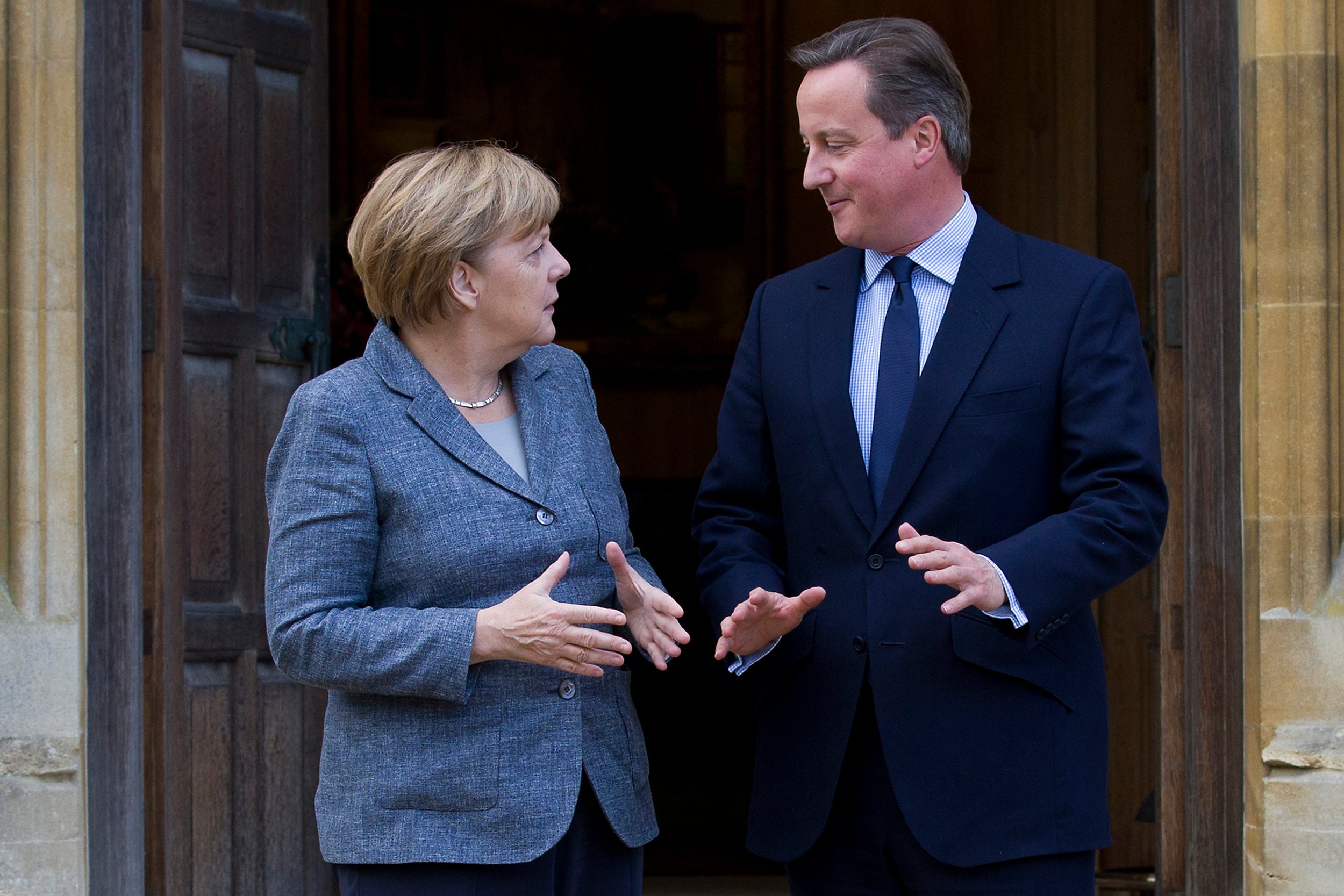David Cameron's hopes of keeping Britain in the EU boosted as Angela Merkel says deal 'can be done'
The German Chancellor said some of David Cameron's demands for reforming Britain's relationship with the EU would be 'difficult' but said she was confident a solution could be found

Your support helps us to tell the story
From reproductive rights to climate change to Big Tech, The Independent is on the ground when the story is developing. Whether it's investigating the financials of Elon Musk's pro-Trump PAC or producing our latest documentary, 'The A Word', which shines a light on the American women fighting for reproductive rights, we know how important it is to parse out the facts from the messaging.
At such a critical moment in US history, we need reporters on the ground. Your donation allows us to keep sending journalists to speak to both sides of the story.
The Independent is trusted by Americans across the entire political spectrum. And unlike many other quality news outlets, we choose not to lock Americans out of our reporting and analysis with paywalls. We believe quality journalism should be available to everyone, paid for by those who can afford it.
Your support makes all the difference.David Cameron's hopes of keeping Britain in the European Union have been boosted as German Chancellor Angela Merkel said a deal is possible.
The Prime Minister set out his four key demands for reforming Britain's relationship with the EU in a letter sent to the European Council president Donald Tusk.
The most contentious of the changes are proposals to bar EU migrants from accessing in-work benefits and social housing for their first four years in the UK, designed to reduce the lure of migrating to the UK.
Ms Merkel accepted that it would be difficult to achieve consensus across the 28-state bloc but said she was confident a solution could be found to ensure Britain stays in the EU.
"I spoke with him by phone yesterday," she said during a press conference on Tuesday. "I know his demands, so what is being proposed now is not surprising.
"We want to take a solution-based approach to these demands. There are some that are difficult, and some that are less difficult. But if you have a willingness to solve this then I am confident we can resolve it."
However the response from the European Commission was markedly different, describing Mr Cameron's proposal to prevent migrants from access to welfare as "highly problematic".
A spokesman said it harmed one of the founding principles of the EU - freedom of movement - because the current proposals would discriminate between EU citizens.
Mr Cameron's call for citizens of new EU member states to be blocked from freedom of movement rules also received a frosty reaction.
Poland and Slovakia ministers rejected Mr Cameron's proposals to block access to benefits for migrants while Martin Schulz, president of the European Parliament, also expressed doubts over the legality of Mr Cameron's key demand.
"I've heard what the Prime Minister said It is good that the UK's requests are now set out officially," he said. "I have strong doubts about the legality of the four year ban on access to welfare benefits for EU citizens but wait to see what specific ideas the British government will come up with in the end in this particular area."
Poland's foreign minister Witold Waszczykowski told the Daily Telegraph: “We are not happy about any moves to segregate people according to where they come from. If they want to change the benefits to all people living in the UK then we can’t challenge that.
"But if Cameron wants to divide people according to their nationality then that is against the free movement of labour and the treaty.
“It would be humiliating," he added. "Also, if this was allowed, other countries might follow suit and place their own restrictions."
The three other reforms Mr Cameron is hoping to achieve are protections for the single market for non-euro countries, boosting competitiveness across the whole of the EU and securing an opt-out of the commitment to "ever-closer union" while also giving national parliaments a greater say over law-making in Brussels.
Join our commenting forum
Join thought-provoking conversations, follow other Independent readers and see their replies
Comments